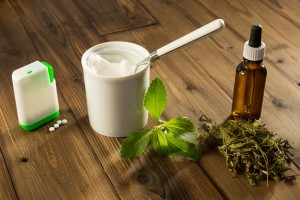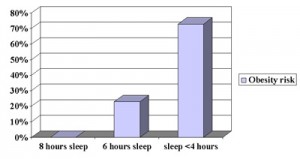It is true that sweets are not good for you because they lead to fat accumulation and to diabetes. I explain how this works later in this blog. But who says you cannot sweeten your life with healthy ingredients? Not all sugar substitutes are the same; some are awful, some are in between and one is good (see below).
General information why sweets and starches are bad for you:
There is a triple whammy from sweets that you don’t really want:
a) First, sugar gets absorbed really fast through the gut wall and arrives in your blood stream within 15 to 20 minutes. Starches can be just as powerful in terms of blood sugar surges, but it takes perhaps 30 to 40 minutes for the peak of blood sugar to occur. The end result is the same: whether you load up with a pizza, a doughnut or drink a large, sugar-loaded soda drink, your pancreas reacts the same way. It produces a lot of extra insulin to bring the blood sugar level down. When you do this day after day your pancreas gets used to overproducing insulin and you develop insulin resistance meaning that your insulin receptors that are on every cell surface get tired and become less sensitive to insulin. Due to insulin resistance the muscle cells and the liver cells do not take up sugar (in the form of glucose) as easily as before.
b) Second, because excess sugar cannot be stored as glycogen (the storage form of glucose in the liver and the muscles), the liver converts excess glucose into triglycerides and oxidized fatty acids get taken up by white blood cells called macrophages. These attach to the inner lining of the arteries and lead to atheromatous plaques, the first stage of hardening of the arteries.
c) Third, glucose is an oxidizing agent that will oxidize LDL cholesterol. This makes the LDL particles much denser and forms the so-called very dense LDL lipoprotein fraction (VDLDL) that can be detected in special blood tests (Ref.1).
Not surprisingly people who consume sugar, sweets, soft drinks and starches on a regular basis will have very dense LDL particles (=VDLDL, also called “pattern B-LDL”). The treatment for this is to quit sugar and starchy foods.
I have explained in more detail what sugar does in this blog.
The food industry’s answer to low carb diet drinks and low sugar foods:
Many years back the food industry decided to offer alternative diet drinks that would not contain sugar, but instead have aspartame in it.
Dr. Blaylock has researched excitotoxins like MSG and aspartame (NutraSweet) and urges you in this link to abandon both. I agree with him. But while we are at it, don’t take other artificial sweeteners like sodium cyclamate in Canada (Sweet’N Low). Are you thinking of taking sucralose (Splenda) instead? Think again. What the industry seems to have forgotten is that it was originally developed as an insecticide. This website states that sucralose was actually discovered while trying to create a new insecticide. A researcher tasted it and found it exceedingly sweet. I have done the experiment myself in Hawaii where small ants are ubiquitous. I thought I take a package of Splenda from a coffee shop and do the experiment: In the beginning the ants were reluctant to eat it, but after a few hours they came and took it in. One day later there were only shrivelled up dead ants left in the area where Splenda had been sprinkled. Proof enough for me that Splenda was developed as an insecticide!
In the Splenda marketing scheme they decided to first introduce Splenda gradually into diabetic foods as a sweetener, then later sell it to the public at large. Don’t fall for it. It was a side product of insecticide research, and insecticides have the undesirable quality of being xenoestrogens, which block estrogen receptors in women. As a result of that estrogen can no longer access the body cells, including the heart. The final consequence for a woman is a higher risk for cardio-vascular disease. This can cause heart attacks, strokes and cancer. In men estrogen-blocking xenoestrogens can cause breast growth and cause erectile dysfunction.
The natural sweeteners:
One wonders why the food industry did not choose healthy sweeteners like stevia that has been used for decades in Japan and South America.
Other sweeteners like xylitol, sorbitol, maltitol, mannitol, glycerol, and lactitol are sugar alcohols. Contrary to what many believe they have calories, but much less than sugar, so they are perceived as “safe” as a dietary supplement for weight loss. These alcoholic sugar compounds still produce partial LDL oxidization; interfere with weight loss and still lead to a certain insulin response. Stevia, a natural sweetener from a leaf of South America is safer and without any calories.
The key is that stevia will not oxidize your LDL cholesterol and will not cause a hyperinsulinism response following a meal. It is metabolically neutral. It is the ideal sweetener for people who desire to lose some weight. It is also safe as it is no excitotoxin. The FDA has recognized stevia as “generally recognized as safe” (GRAS).
What about fructose, agave syrup, honey, brown rice malt syrup, fruit juice concentrates, refined fructose, maple syrup?
The problem is that they are all sugars, which cause a full insulin response leading to obesity, diabetes and hardening of the arteries. This causes heart attacks and strokes. These natural sugar products also oxidize LDL cholesterol, which initiates plaque formation as discussed above; this is the first step leading to hardening of the arteries. It took the medical profession 30 years of observing that a low fat/high carb diet makes us fat and causes heart attacks, leads to strokes and causes diabetes. Let’s not make the mistake of trusting the food industry and mindlessly swallow so-called natural other sugars and sugar substitutes like xylitol, sorbitol, maltitol, mannitol, glycerol, and lactitol. You may want to chew the odd gum with xylitol, as this will prevent cavities in your teeth. But otherwise it is much safer to just stick to Stevia to sweeten your tea, coffee or food. There are brands that are less bitter than regular stevia products, like stevia from New Roots in Canada and stevia from KAL in the US (no, this is not a commercial, it is based on my own observations).
Conclusion:
Sugar is an emotional topic that can get people caught up in heated discussions. The sugar industry and the sugar substitute industry have also powerful lobby groups that provide the Internet and the popular press with conflicting stories to convince you to buy their product. This blog was meant as a no-nonsense guide to get you removed from the high-risk group of candidates for heart attacks, strokes or diabetes. Let’s not forget the metabolism behind the various sugars and starchy foods described above, which I have explained in more detail in my recently published book (Ref.2). Forget the emotions of severing yourself from your favorite fix and stick to a tiny amount of stevia that can replace the familiar sweet taste that you have become accustomed to from childhood onward. At least this is what I do. The only alternative would be to take the plunge and cut out any sweet substance altogether, which I am not prepared to do. If you can do it, by all means go ahead.
More information on carbohydrates: http://nethealthbook.com/health-nutrition-and-fitness/nutrition/carbohydrates/
Reference:
1. Life Extension: Disease Prevention and Treatment, Fifth edition. 130 Evidence-Based Protocols to Combat the Diseases of Aging. © 2013
2. Dr. Ray Schilling: “A Survivor’s Guide to Successful Aging“, Amazon.com, 2014
Last edited Nov. 7, 2014







